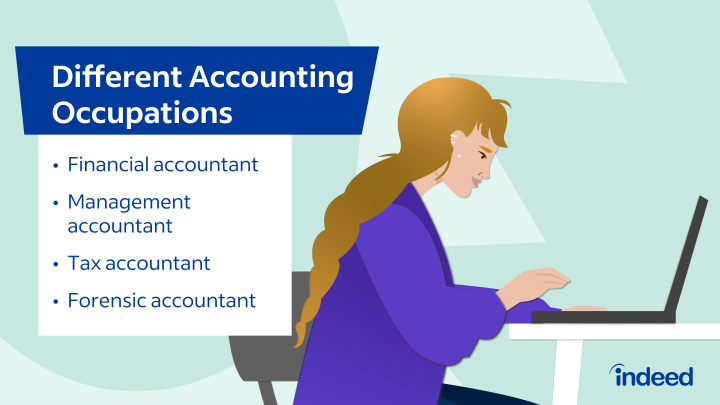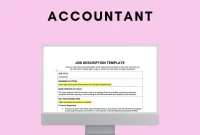Accountants play a vital role in businesses and organizations by managing financial records, ensuring compliance with financial regulations, and offering strategic advice. They prepare financial statements, analyze budgets, and help with tax preparation. Their expertise is crucial during financial audits and when organizations are making critical financial decisions. Additionally, accountants often work closely with management to develop financial strategies and optimize organizational performance. The demand for accountants is strong, thanks to businesses always needing financial expertise. This demand is further fueled by globalization and regulatory changes, making accountants essential in the modern business environment.
Beyond technical skills, accountants must possess strong analytical abilities and attention to detail. Their role often involves interpreting complex financial data and presenting it in a way that’s understandable to non-specialists. Effective communication skills are also vital, as accountants must convey their findings and recommendations clearly to stakeholders. Moreover, as technology continues to transform the accounting industry, professionals are expected to be proficient with various accounting software and tools, which streamline processes and enhance accuracy. Keeping abreast of technological advancements is crucial for accountants to maintain their competitive edge.
Steps to Becoming an Accountant
Step 1: Obtain a Relevant Degree
Most accountants start their careers by earning a bachelor’s degree in accounting or a related field. This degree typically takes four years to complete and covers essential topics such as financial accounting, managerial accounting, and auditing. The curriculum often includes courses in business law, ethics, and information systems, providing a well-rounded foundation for aspiring accountants. Many programs also offer specialized tracks or electives that allow students to focus on areas like taxation, forensic accounting, or financial analysis, tailoring their education to their career interests.
Obtaining a degree not only equips you with the necessary knowledge but also enhances your employability. Employers often prefer candidates with formal education, as it demonstrates a commitment to the profession and a solid understanding of accounting principles. Furthermore, some institutions offer cooperative education programs or partnerships with businesses, providing students with the chance to gain practical experience while completing their studies. This blend of academic learning and real-world application is invaluable in preparing for a successful accounting career.
How Much Does It Cost to Become an Accountant?
The cost of becoming an accountant can vary widely depending on the institution you choose to attend. On average, a bachelor’s degree in accounting from a public university can cost between $20,000 and $60,000. Private institutions may be more expensive, but scholarships and financial aid can help offset these costs. It’s important to consider these expenses when planning your education journey. Additionally, it’s wise to research and apply for grants, fellowships, and work-study programs that can further reduce the financial burden.
Understanding the financial implications of your education can help you make informed decisions about where to study. It’s also worth considering the return on investment; accounting is a field with strong earning potential and job stability, which can justify the initial costs. Furthermore, some employers offer tuition reimbursement programs for employees who wish to pursue further education, providing another avenue to manage expenses. By exploring all available options, you can strategically plan your education without compromising your financial stability.
Step 2: Pursue Further Education (Optional)
While a bachelor’s degree is sufficient for many accounting positions, some individuals choose to further their education by pursuing a master’s degree in accounting or a related field. This can enhance job prospects and provide deeper knowledge in specialized areas of accounting. A master’s program typically covers advanced topics such as international accounting, strategic management, and financial reporting, offering a comprehensive understanding of the field. This additional qualification can set you apart in a competitive job market, particularly for roles that require expertise in specific accounting domains.
Pursuing further education also opens doors to academic and research-oriented careers. Some accountants may opt to transition into teaching or consulting roles, where a master’s degree or even a Ph.D. may be required. Moreover, advanced degrees can provide a pathway to executive positions within organizations, such as Chief Financial Officer (CFO) or Controller, where strategic decision-making and leadership skills are crucial. Therefore, continuing education can be a strategic move for those looking to expand their career horizons in accounting.
Step 3: Gain Relevant Experience
Experience is key in the accounting field. Many students complete internships during their degree program to gain practical experience and build a professional network. These internships can lead to job offers post-graduation and give you a competitive edge in the job market. Internships provide hands-on experience in accounting tasks and exposure to real-world financial challenges, enhancing your problem-solving and analytical skills. They also allow you to apply theoretical knowledge gained during your studies in a practical setting, solidifying your understanding of accounting principles.
In addition to internships, consider volunteering for non-profit organizations or participating in cooperative education programs to gain diverse experience. These opportunities not only build your resume but also demonstrate your commitment to the field. Furthermore, they can help you identify your areas of interest within accounting, guiding your career path and professional development. By actively seeking out and engaging in varied experiences, you can develop a robust skill set that will serve you well throughout your accounting career.
Step 4: Obtain Certification
Becoming a Certified Public Accountant (CPA) is a significant step for many accountants. The CPA credential is highly respected and can open doors to advanced career opportunities. To become a CPA, you must pass the Uniform CPA Exam and meet your state’s specific licensing requirements, which often include additional coursework and work experience. The CPA exam is rigorous, testing your knowledge and skills in areas such as auditing, business environment, financial accounting, and regulation, ensuring you are well-prepared for the challenges of the profession.
In addition to the CPA, other certifications can enhance your career prospects and demonstrate expertise in specialized areas. Certifications such as Certified Management Accountant (CMA), Certified Internal Auditor (CIA), and Chartered Financial Analyst (CFA) are highly regarded in the industry. These credentials can bolster your resume and provide opportunities for career advancement, particularly in managerial or consultancy roles. By pursuing these certifications, you not only validate your skills but also signal to employers your commitment to professional growth and excellence.
How to Become an Accountant Without a Degree
Not everyone takes the traditional route to becoming an accountant. It’s possible to enter the field without a degree, though it may require more effort and determination. Navigating this path involves leveraging practical experience and continuously developing your skills to meet industry standards. While it may be more challenging, this route can be highly rewarding for those who are committed to succeeding in the accounting profession.
Gain Experience and Skills
Start by gaining relevant experience in finance or bookkeeping roles. Many employers value practical experience and may offer on-the-job training for promising candidates. Online courses and certifications in accounting can also help you acquire the necessary skills. These platforms provide flexible learning opportunities, allowing you to study at your own pace and focus on areas that align with your career goals. Additionally, gaining experience through freelance or part-time work can help build your portfolio and demonstrate your capabilities to potential employers.
Practical experience not only enhances your resume but also provides insights into the day-to-day responsibilities of an accountant. Engaging in continuous learning through webinars, workshops, and industry conferences can further hone your skills and keep you updated on the latest trends and technologies. By actively seeking out opportunities to learn and apply your knowledge, you can build a strong foundation in accounting, even without a formal degree.
Pursue Alternative Certifications
Several certifications can enhance your credibility and demonstrate your expertise in accounting. For example, the Certified Management Accountant (CMA) and Chartered Financial Analyst (CFA) certifications are respected in the industry and do not require a formal degree. These certifications focus on specific areas such as management accounting and investment analysis, providing targeted knowledge that can be highly valuable in specialized roles. Earning these credentials can help you stand out in a competitive job market and provide a pathway to career advancement.
In addition to CMA and CFA, certifications such as the Certified Bookkeeper (CB) and Certified Fraud Examiner (CFE) can also be valuable for those without a degree. These credentials can open doors to various accounting roles and demonstrate your commitment to professional development. By pursuing these alternative certifications, you can build a solid reputation in the accounting field and increase your career prospects.
Network and Build Relationships
Networking is crucial in any career, and accounting is no exception. Attend industry events, join professional organizations, and connect with accountants on LinkedIn to expand your network. Building relationships can lead to job opportunities and valuable mentorship. Engaging with professionals in the field allows you to gain insights into the industry, learn about potential career paths, and stay informed about job openings and trends. Establishing a strong professional network can be a powerful tool in your career development.
Consider participating in online forums, webinars, and discussion groups related to accounting to broaden your connections. These platforms provide opportunities to engage with professionals from diverse backgrounds and share knowledge and experiences. Additionally, seeking mentorship from experienced accountants can provide guidance and support as you navigate your career. By actively networking and building meaningful relationships, you can enhance your professional growth and open doors to new opportunities in the accounting industry.
The Importance of Continuing Education
The accounting field is constantly evolving due to changes in regulations, technology, and best practices. Continuing education is essential for staying current and maintaining your competitive edge. Many CPAs must complete continuing professional education (CPE) hours to keep their license active. These educational requirements ensure that accountants remain knowledgeable about the latest developments and can provide informed advice to their clients and organizations. Staying updated with new regulations and technologies is crucial for maintaining accuracy and compliance in financial reporting.
Continuing education also offers opportunities to specialize in emerging areas of accounting, such as data analytics, cybersecurity, and sustainability reporting. By expanding your skill set, you can position yourself as a valuable asset to employers and clients, capable of addressing complex challenges. Engaging in lifelong learning fosters adaptability and innovation, allowing you to thrive in a dynamic profession. Embracing continuing education demonstrates your commitment to professional excellence and positions you for long-term success in the accounting field.
Career Opportunities in Accounting
The accounting profession offers diverse career paths. Here are a few options you might consider:
Public Accounting
Public accountants work for accounting firms and provide services such as auditing, tax preparation, and consulting to various clients. This path offers exposure to a wide range of industries and can be a stepping stone to specialized roles. Working in public accounting provides opportunities to develop expertise in areas like tax compliance, financial reporting, and risk management. The diverse client base allows accountants to gain insights into different business models and sectors, enhancing their versatility and problem-solving abilities.
Public accounting can also serve as a foundation for pursuing specialized roles in areas like forensic accounting or international taxation. The experience gained in public accounting firms is highly regarded and can open doors to leadership positions within the firm or opportunities in other organizations. Furthermore, public accountants often work in team settings, fostering collaboration and communication skills that are valuable in any career. By gaining experience in public accounting, you can build a strong foundation for a successful and dynamic career.
Corporate Accounting
Corporate accountants work within a single organization, managing financial records, budgets, and internal audits. This role offers stability and the opportunity to develop a deep understanding of a specific industry. Corporate accountants play a crucial role in strategic planning, financial analysis, and budget management, contributing to the organization’s overall success. Their insights help drive business decisions and optimize financial performance, making them key players in the company’s growth and sustainability.
In corporate accounting, professionals have the opportunity to specialize in areas such as financial planning and analysis, cost accounting, or treasury management. This specialization allows accountants to focus on specific aspects of the business, developing expertise and advancing their careers within the organization. Additionally, corporate accountants often collaborate with cross-functional teams, enhancing their communication and leadership skills. By pursuing a career in corporate accounting, you can enjoy a stable and rewarding career with opportunities for advancement and professional growth.
Government Accounting
Government accountants work for federal, state, or local agencies, ensuring financial compliance and managing public funds. This career path offers job security and the chance to contribute to public service. Government accountants play a vital role in budgeting, financial reporting, and auditing for public entities, ensuring transparency and accountability in the use of taxpayer funds. Their work supports the efficient allocation of resources and the delivery of essential public services, making a meaningful impact on society.
In addition to traditional accounting tasks, government accountants may also be involved in policy development, program evaluation, and fiscal planning. These roles offer opportunities to influence public policy and contribute to the effective functioning of government operations. Furthermore, government accounting provides a stable work environment with opportunities for career advancement and professional development. By choosing a career in government accounting, you can make a positive difference in your community while enjoying a fulfilling and secure career.
Forensic Accounting
Forensic accountants specialize in investigating financial discrepancies and fraud. They often work with law enforcement agencies and legal professionals, making this a unique and challenging career option. Forensic accountants use their analytical and investigative skills to uncover financial misstatements, embezzlement, and other fraudulent activities, playing a critical role in legal proceedings and dispute resolution. Their expertise is essential in uncovering complex financial schemes and ensuring justice is served.
In addition to fraud investigation, forensic accountants may also be involved in litigation support, providing expert testimony and analysis in court cases. This role requires a strong understanding of legal procedures and the ability to communicate complex financial information clearly and concisely. Forensic accounting offers diverse opportunities, ranging from working with government agencies and private firms to consulting roles in specialized forensic practices. By pursuing a career in forensic accounting, you can enjoy a dynamic and impactful career that combines accounting expertise with investigative skills.
Conclusion
Becoming an accountant requires a blend of education, experience, and dedication. Whether you choose the traditional route of obtaining a degree or pursue alternative paths, the accounting field offers numerous opportunities for growth and success. By gaining the necessary skills, obtaining certifications, and continuing to learn, you can build a fulfilling career as an accountant. The journey to becoming an accountant is unique for everyone, and there are multiple paths to success. Embrace the path that aligns with your goals and circumstances, and you’ll be well on your way to a rewarding career in accounting.
Remember, the accounting profession is dynamic and ever-changing, offering opportunities for continuous learning and development. By staying committed to your professional growth and embracing new challenges, you can achieve success and make a meaningful impact in the world of accounting. Whether you’re managing financial records, providing strategic advice, or investigating fraud, your contributions as an accountant are invaluable to businesses, organizations, and society as a whole. Pursue your passion for accounting with determination and enthusiasm, and you’ll find a career that is both rewarding and fulfilling.



